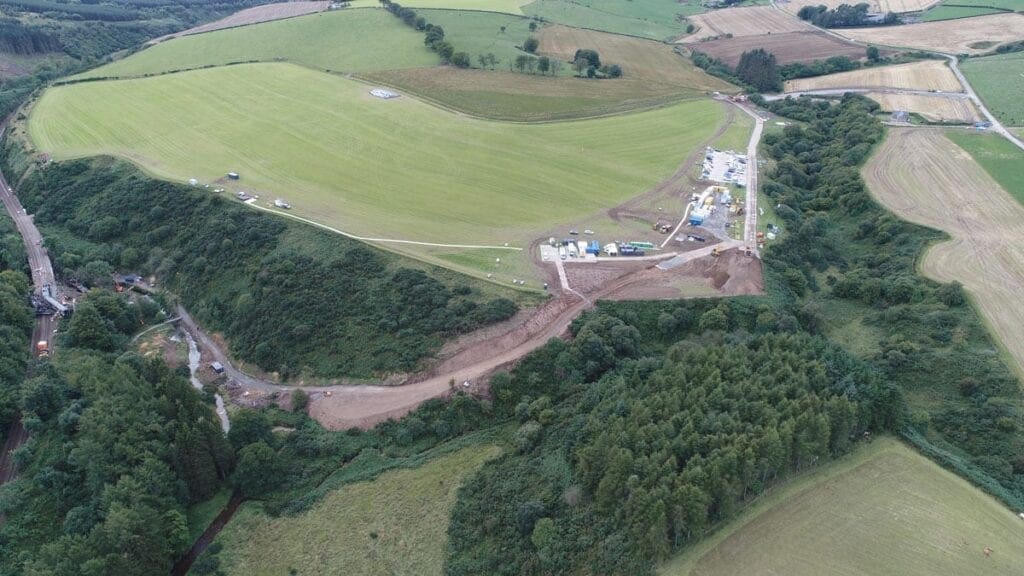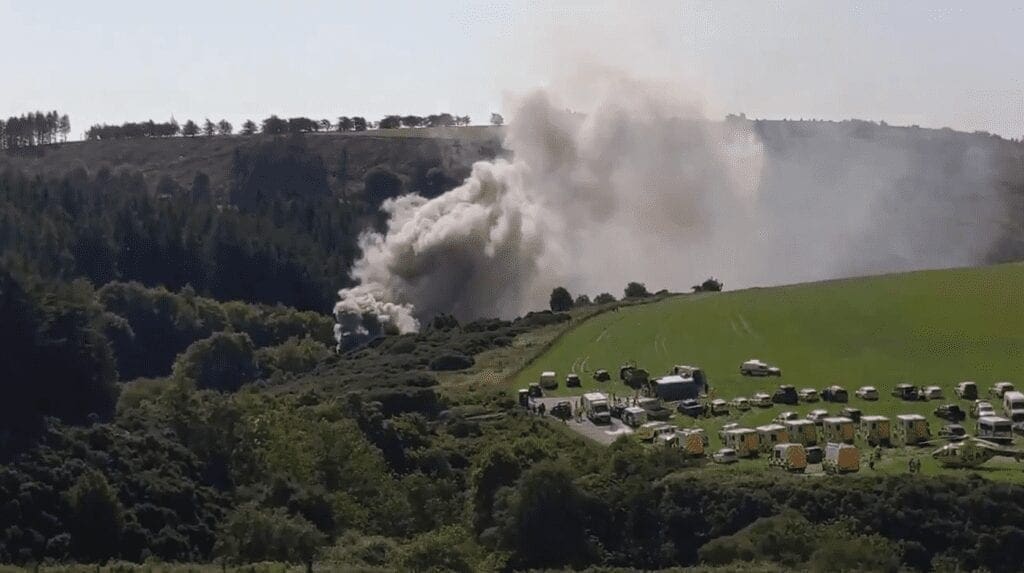
A report into the Stonehaven derailment has found that the impact of severe weather events due to climate change is “accelerating faster than our assumptions”.
An interim report by Network Rail admits that the rail industry must improve its response to extreme weather – following the fatal derailment near Stonehaven last month.
Driver Brett McCullough, 45, conductor Donald Dinnie, 58, and passenger Christopher Stuchbury, 62, died when the 6.38am ScotRail service from Aberdeen to Glasgow Queen Street train crashed into a landslide across the tracks near Stonehaven on August 12 following heavy rain.
Enjoy more Rail Express Magazine reading every month.
Click here to subscribe & save.
The report says that the train hit washed-out stone covering the line.
“After departing Stonehaven, the train was continuing on its southbound journey when it was stopped by an emergency radio message from the signaller at Carmont, who had received a report of a landslip obstructing the line. Following a period of around two and a half hours waiting for an operations manager to arrive and secure the points, the train was returning to Stonehaven to allow onward travel for the passengers on board. It had reached close to the 75mph line speed.
“At around 09:38, the train rounded a left-hand curve and struck a pile of washed-out stone covering the line. The front part of the train was derailed by the washed-out material. After striking a bridge parapet, the whole train derailed.”
The report by Network Rail assessed the current controls and management of thousands of miles of earthworks – the sloped ground beside railway tracks – and drainage infrastructure.
It saw hundreds of sites across the country being inspected by engineers, specialist contractors and helicopters over the past three weeks to identify any issues requiring emergency intervention.
The report is investing in prioritising locations assessed as higher risk, and highlighted the need to deploy more technology and across the network to predict and warn of failures.
And it said investment in better weather forecasting was needed to enable local decisions to be made in advance.

Is climate change causing more delays?
Network Rail chief executive Andrew Haines said the UK’s railway was one of the safest in Europe, and that tragic accidents are “incredibly rare”. But he said something had gone wrong near Stonehaven on the day of the derailment, which was a “stark reminder that we must never take safety for granted”.
The report rightly points out that most earthworks beside the UK’s railway network were built more than 150 years ago, without the detailed engineering design and not to modern standards.
Because of this, cuttings and enbankments were constructed with steep and unreinforced slopes and – despite numerous improvements over the years – they are not as robust as the modern equivalent.
These structures are difficult to manage, with underlying geology, nearby environments and local weather patterns meaning rebuilding thousands of miles of earthworks to modern day standards is not practicable, in terms of delivery and from a funding perspective.
Instead, new techniques to monitor and manage ageing earthworks assets have been developed to ensure a derailment of this kind doesn’t happen again, and are recognised as industry-leading by members of the UK Geotechnical Asset Owners Forum.
Climate change considerations are now embedded in Network Rail’s standards and planning. But severe weather events over recent years means “this is an area that is accelerating faster than our assumptions, and as a result it has become even more important to implement
these plans.”




